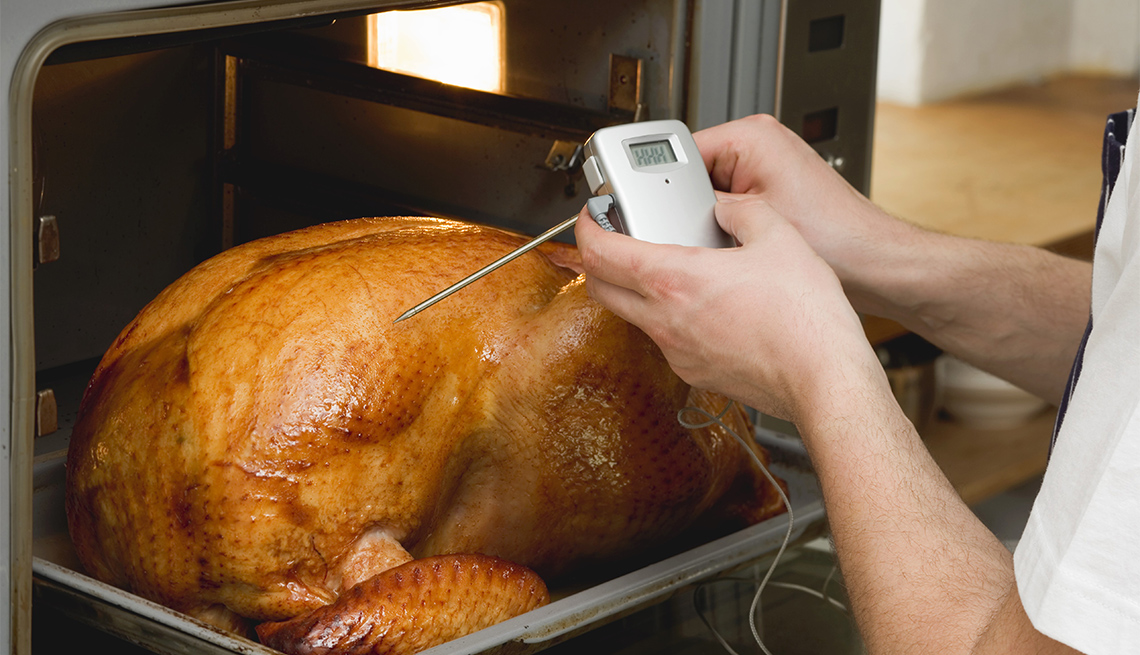What Happens if Meat Thermometer Touches Bone?
Written By James Morgan
You've dedicated your entire weekend to barbecuing an amazing feast for your friends and family. The smoky aroma from the grill is enough to make anyone drool. But when the time comes to check if the meat is cooked to perfection, using a meat thermometer is your go-to method. One simple yet critical question comes to mind: What happens if meat thermometer touches bone?
The proper use of a meat thermometer can make or break the barbecue experience. This seemingly small task is essential for achieving the perfect doneness of your meat. But getting it wrong can lead to inaccurate readings, affecting taste and safety.

The Importance of Accurate Temperature Readings
The key to cooking juicy, tender meat lies in accurate temperature readings. A difference of just a few degrees can transform your delicious barbecue into chewy, overcooked meat. Heres why you should care about where you insert your meat thermometer:
- Food Safety: Undercooked meat can harbor harmful bacteria like salmonella and E. coli.
- Flavor & Texture: Overcooked meat can be tough and dry, while undercooked meat may be too raw for some tastes.

Why Bone Contact Matters
So, what happens if meat thermometer touches bone? Bones generally have a different density compared to meat. When the thermometer probe touches the bone, it can give you a false high reading. The bone heats up faster and holds the heat longer than muscle tissues, skewing your temperature reading.
- False High Temperature: This can lead you to believe that the meat is cooked when it is still underdone.
- Guessing Game: You might end up overcompensating for the incorrect reading by overcooking the meat.
:max_bytes(150000):strip_icc()/sea-tier-3-detail-thermoworks-blue-dot-alarm-thermometer-bluetooth-wireless-technology-wdickey-0650-88b26286085e4e638245a8d467f583f8.jpeg)
How to Properly Use a Meat Thermometer
For accurate readings, follow these tips to properly use a meat thermometer:
- Find the Thickest Part: Always insert the thermometer into the thickest part of the meat, away from bone and fat.
- Avoid the Bone: Make sure the probe does not touch any bones or gristles.
- Wait for a Stable Reading: Wait for the thermometer to stabilize before taking the reading.
Types of Thermometers
There are several types of meat thermometers available, each with its own set of pros and cons:
- Digital Thermometers: Quick and easy to read but need batteries.
- Dial Thermometers: No batteries needed but less precise.
- Instant-Read Thermometers: Quick but not ideal for continuous monitoring.

Common Mistakes to Avoid
Even seasoned barbecue enthusiasts can make mistakes with their meat thermometers. Here are some pitfalls to avoid:
- Inserting Too Shallow: Ensure the thermometer is inserted properly into the thickest part.
- Checking Too Soon: Give the meat enough time to cook before checking the temperature.
- Ignoring Rest Time: After grilling, let the meat rest to allow the juices to redistribute.
Expert Quotes
Heres what some barbecue experts have to say:
Using a meat thermometer properly is crucial for achieving the perfect barbecue. Always ensure it doesnt touch the bone to get an accurate reading, advises John Smith, a professional chef and grill master.
More Tips on Using Meat Thermometers
For those interested in diving deeper, various online resources provide detailed guides on how to use a meat thermometer.
Conclusion
Knowing what happens if meat thermometer touches bone is essential for any barbecue enthusiast. By understanding the impact of accurate temperature readings, you can ensure that your meat is cooked to perfection every time. Remember to always insert the thermometer correctly to avoid touching the bone, and you'll be on your way to becoming a barbecue master.
FAQs
Can I use a meat thermometer on all types of meat?
Yes, you can use a meat thermometer on all types of meat, including poultry, beef, lamb, and pork.
Is it okay to leave the meat thermometer in while cooking?
Some thermometers are designed to be left in the meat during cooking. Always check the manufacturer's guidelines for specifics.
How can I sanitize my meat thermometer?
To sanitize your meat thermometer, you can follow these simple steps to ensure it's clean and safe for use.
As an Amazon Associate, I earn from qualifying purchases.



